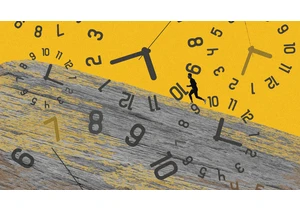This week, Senators Maria Cantwell (D-WA), John Hickenlooper (D-CO), Cynthia Lummis (R-WY) and Roger Wicker (R-MS) introduced the Orbital Sustainability (ORBITS) Act on the Congress floor. The bipartisan bill is aimed at developing active debris removal (ADR) technology, with the eventual goal of removing dangerous debris objects from orbit.
The debris problem
Over 100 million individual pieces of debris are in Earth’s orbit right now, ranging from flecks of dust and paint to spent American and Soviet boosters to decommissioned, defunct satellites. As the space industry gears up to launch tens of thousands of satellites in the coming decade, spacefaring nations’ governments are figuring out how to stop the dreaded Kessler syndrome before it becomes a reality.
Orbital debris is notoriously difficult to regulate. So far, humans have yet to actively remove debris from orbit. While rapidly advancing, ADR is far from the promised land of commercial viability.
“With any new technology, government investment in R&D is essential,” Chris Blackerby, COO of Astroscale, said a few months ago. Public investment can help get innovative new ideas, like ADR, over the “valley of death.”
- For its part, the U.S. Space Force plans to “prime” ADR and other on-orbit servicing technologies by kickstarting market incentives and helping fund demoes.
Draft legislation
The ORBITS act spans four pillars. The bill would:
- Direct NASA, the Office of Space Commerce (OSC), and the National Space Council (NSpC) to create a list of the most dangerous pieces of debris in orbit.
- Direct NASA to create a program focused on debris removal R&D.
- Update orbital debris mitigation guidelines across multiple government agencies.
- Require OSC, the National Space Council, and the FCC to develop practices to improve space situational awareness and space traffic management.
The second provision would allow NASA to petition industry for ADR demonstrations, a major step for advancing this technology in the U.S. The bill recommends appropriations of $150M from 2023 to 2027.
While we’re here . . .
Orbital debris mitigation is top-of-mind across U.S. government agencies. On Tuesday, NASA announced funding for three research proposals on the topic of space sustainability, focusing on the economic, social, and policy impacts. The three awardees:
- Richard Linares and Danielle Wood from MIT and Moriba Jah from the University of Texas–Austin.
- Akhil Rao from Middlebury College, Daniel Kaffine from the University of Colorado–Boulder, and Brian Weeden of the Secure World Foundation.
- Patrice Kohl, Sergio Alvarez, and Philip Metzger of the University of Central Florida.
This story originally appeared on Payload and is republished here with permission.
Chcete-li přidat komentář, přihlaste se
Ostatní příspěvky v této skupině

Welcome to AI Decoded, Fast Company’s weekly newsletter that breaks down the most important news in

The data nerds are fighting back.
After watching data sets be altered or d

Chris Guillebeau spent years racing against time, visiting all 193 countries before he turned 35, hosting annual gatherings of thousands, and writing bestsellers like The $100 Startup. Bu

As my family settles into a whole new city and community, I’ve been eagerly exploring a variety of sites and services for discovering new gems and getting to know our area. And while our recent cr


If you can’t afford a lawyer, it turns out there’s nothing stopping you from sending a scary-looking letter that, at first glance, seems to come from one—and hoping the recipient doesn’t read the

